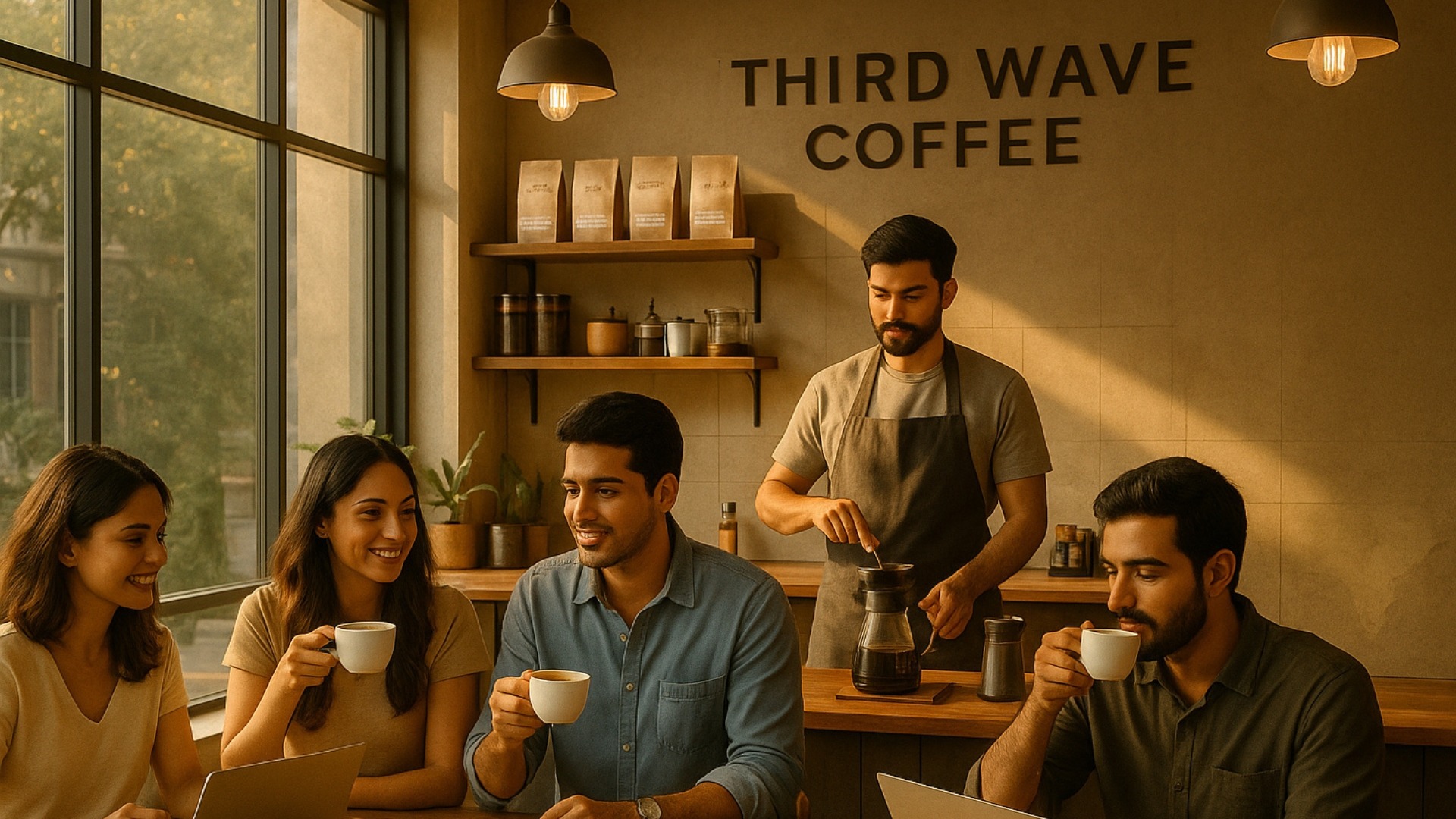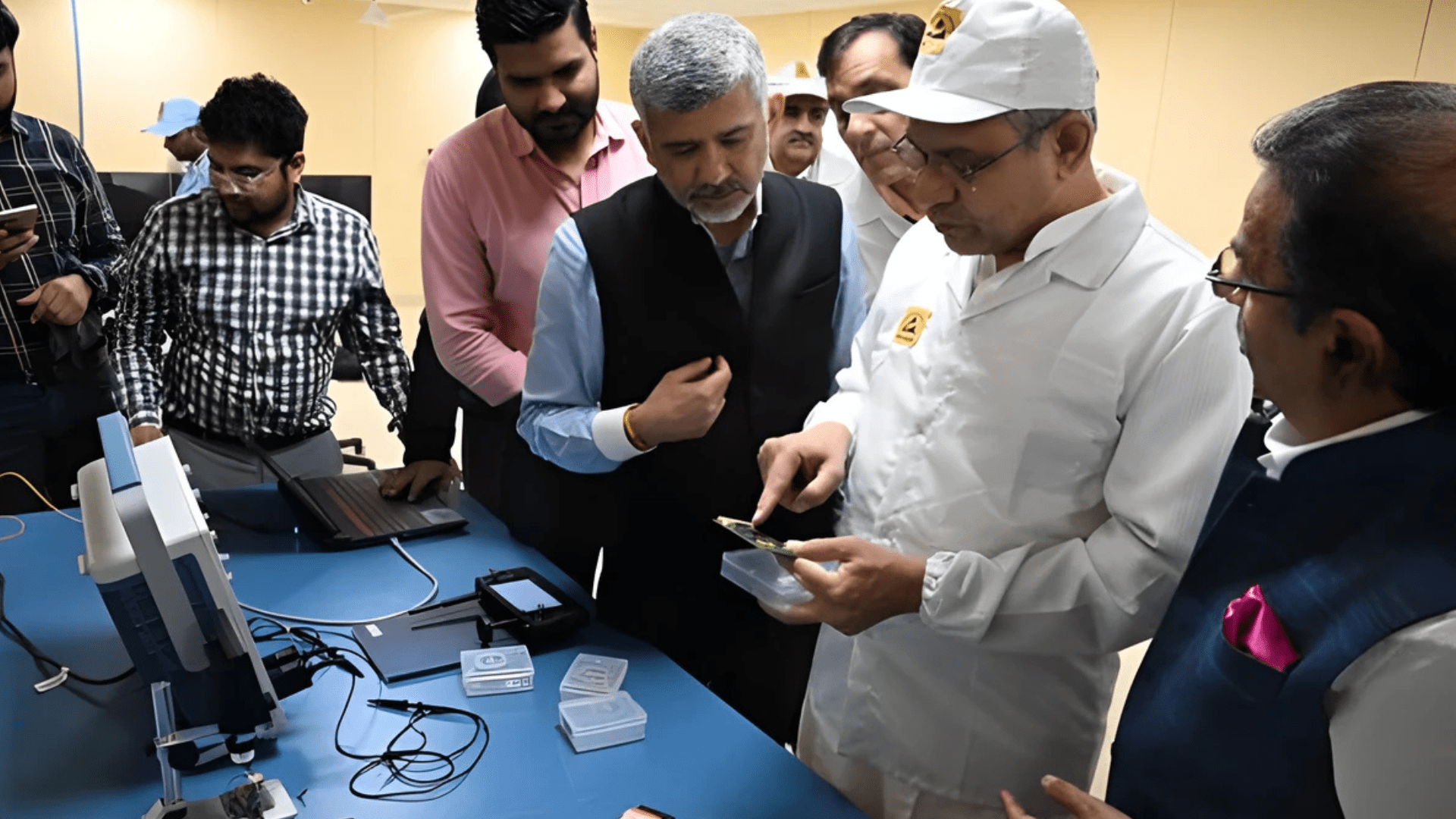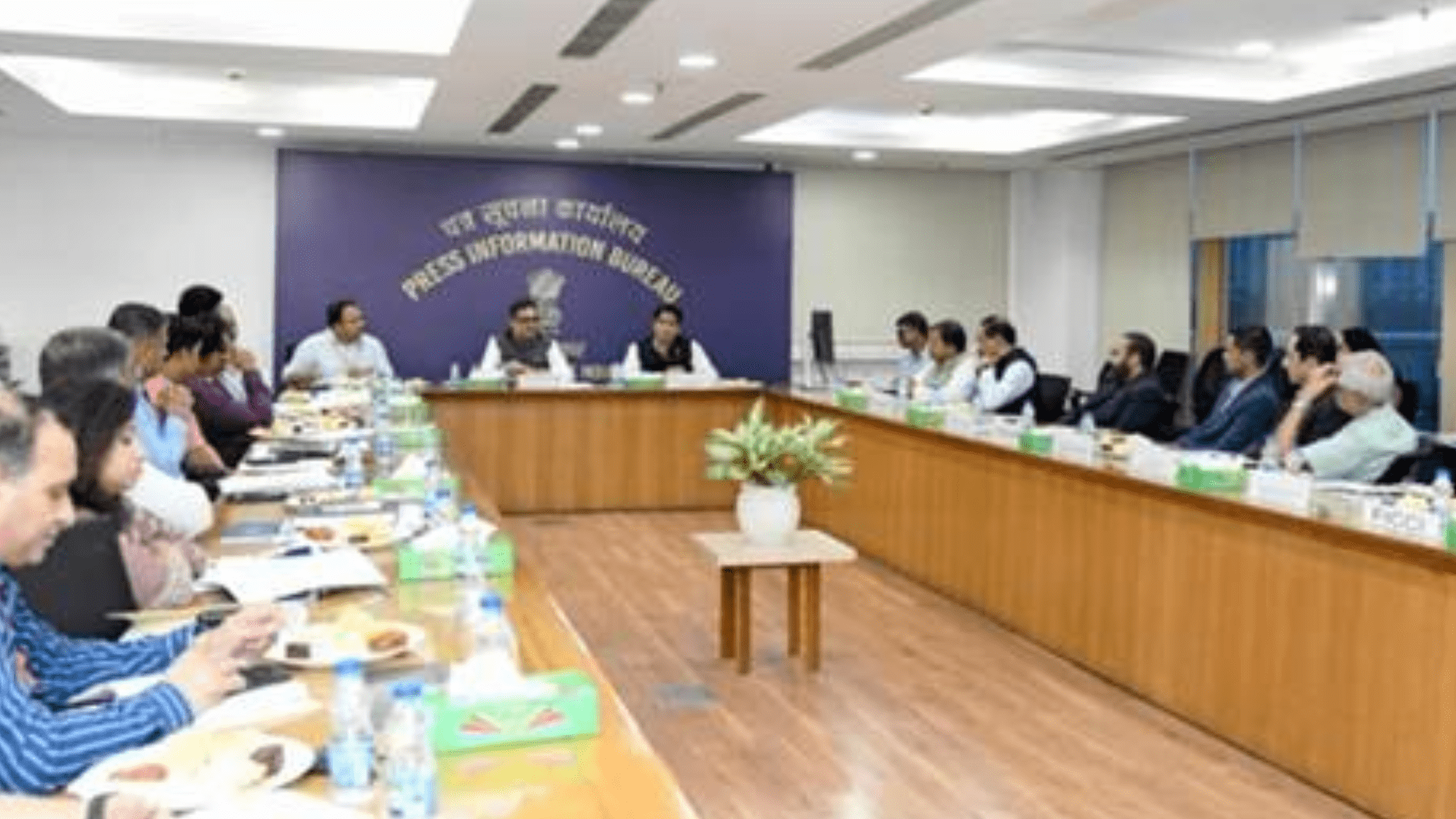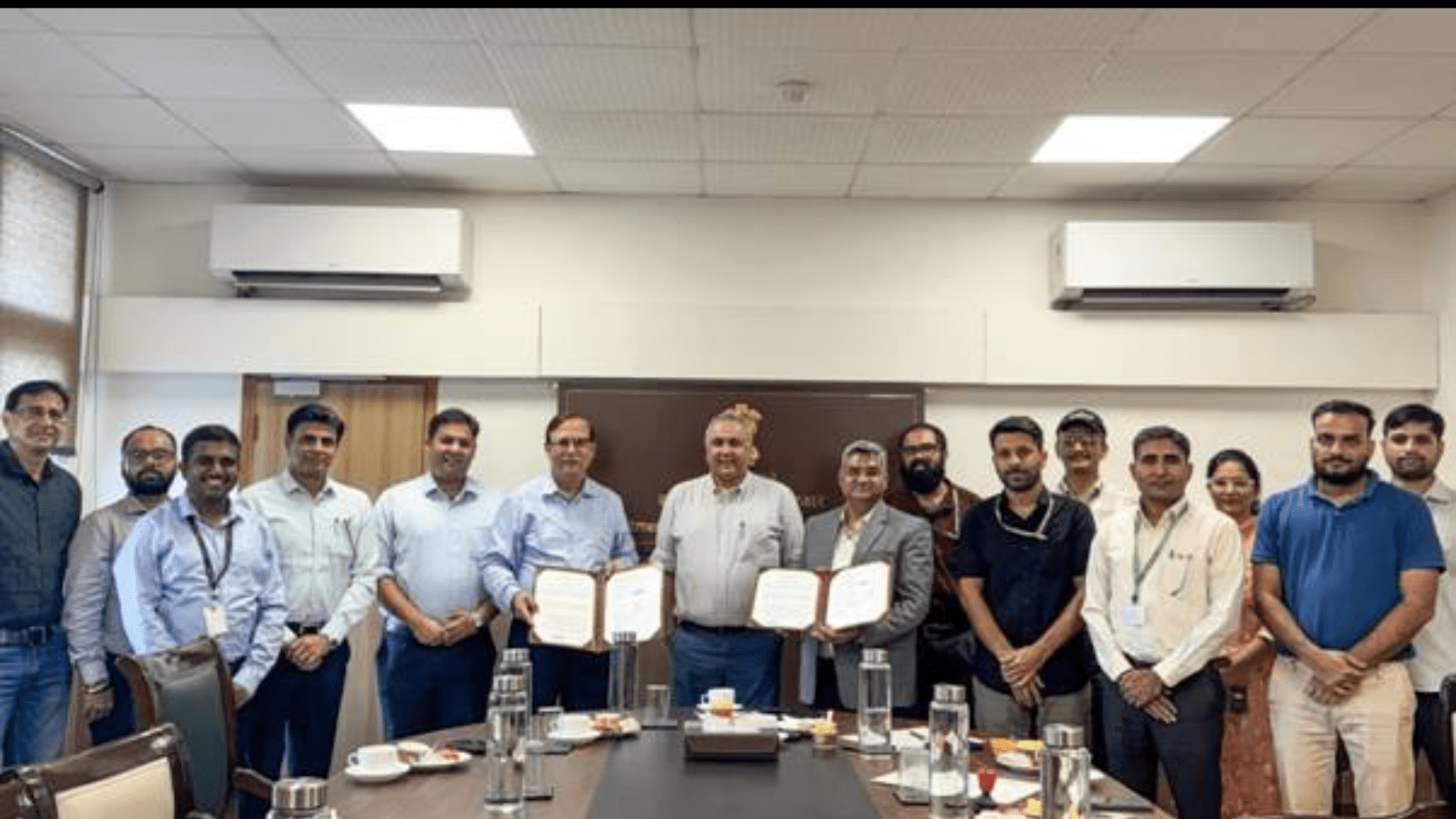India is a country where consuming tea is a most important daily ritual. Most of the Indian families consume tea on a daily basis. In the morning before starting the work, from the first to the last meeting, tea has become an important beverage in day-to-day life. Well, coffee, on the other hand, is also an important beverage, but the consumption rates are so much lower than tea. You know, in India, tea consumption is significantly higher than coffee, and the numbers say it all. In India, per capita tea consumption is 750 grams annually. Coffee, on the other hand, has historically been the underdog, limited to pockets like Karnataka’s Coorg, Tamil Nadu’s filter coffee culture, and urban cafe goers in metros. Even today, India’s per capita coffee consumption hovers at around 90 grams per year, a fraction of what countries like Finland, the US, or even South Korea consume. But there is one company that has taken this up as a challenge and started a company to serve coffee.
Third Wave Coffee, a brand that’s not trying to replace chai but redefine what coffee can mean to Indians. It sees the underpenetration not as a weakness but as a chance to craft a new identity for coffee, not just as a beverage but as a lifestyle, a statement, and a slow art. From sourcing single-origin beans directly from Indian farms to using manual brewing methods like pour-overs, French press, and AeroPress, Third Wave Coffee is introducing India to the global third-wave coffee movement, a movement that focuses on quality, ethics, and craftsmanship. Each cafe is designed to be a place where people pause, create, and connect. The earthy aesthetics, warm lighting, curated playlists, and minimalistic interiors speak directly to India’s growing urban, aware, and aspirational young audience. Today, Third Wave Coffee has more than 110 outlets across India, and they are planning to expand the network to more than 160 outlets.
Third Wave Coffee was started in 2016 in Bengaluru by Sushant Goel, Ayush Bathwal, and Anirudh Sharma, three friends who loved coffee but couldn’t find a good cup in India. They had seen how people abroad enjoyed fresh, well-brewed coffee with real flavor, and they wondered why India, which grows so much coffee, didn’t have something like that. So they decided to build it themselves, where people could experience fresh, high-quality coffee made from beans sourced directly from Indian farms. They learned roasting, explored different brewing methods, and opened their first café with a simple idea: serve excellent coffee, the right way. The name “Third Wave Coffee” comes from a global coffee movement that believes coffee isn’t just a drink; it’s a craft. It’s about knowing where your coffee comes from, how it’s made, and enjoying it the way it’s meant to be.
That’s how it all started today. But starting is easy; scaling is what makes all the difference, and Third Wave Coffee did it all right. Though there is enough competition from the players in the market, such as Starbucks, Blue Tokai, Cafe Coffee Day, and other players, third-wave coffee has created an impact and built its market in less than a decade. There are some very important points that made it all possible. One of the biggest reasons for Third Wave Coffee’s success is its focus on single-origin sourcing. Unlike many cafe chains that use blended or mass-produced beans, Third Wave sources directly from farms in Chikmagalur, Coorg, and Araku. This allows them to maintain consistent quality, control the flavor profile, and share the story behind each cup. And even the studies say it all. Studies from the Specialty Coffee Association (SCA) confirm that single-origin beans retain more distinct flavor characteristics compared to blends—especially when lightly roasted.
So, taste is a winning factor for them. Also, by working closely with farmers, they ensure fair pricing and encourage better farming practices, which leads to better beans. This model helps them offer a premium product, build consumer trust, and celebrate Indian coffee on a global level, making single-origin sourcing the backbone of their brand. Another thing that makes Third Wave Coffee different is that they teach people about it. Most Indians are used to instant coffee or sugary cafe drinks. But Third Wave introduces people to real, freshly brewed coffee, and they take time to explain what’s in the cup. Their baristas are trained to help customers understand things like how the coffee is brewed, where the beans come from, and what flavors to expect. They even hold tasting sessions and brewing workshops at their cafés to help people learn more. And there are other common parameters such as ambience and experience, which help them to stand out. These are some factors that helped them to become what they are today.
Now if we dive deeper into their financials, in the last financial year (FY24), the company posted a 67% jump in operating revenue, growing from ₹144 crore to ₹241 crore. That’s clear proof that more and more Indians are choosing Third Wave for their coffee fix. But with growth, their expenses also shot up from ₹201 crore to ₹358 crore. A big chunk went into employee benefits (₹97 crore) and cost of materials (₹88 crore), showing how much they invest in quality people and high-grade beans. As a result, the net loss widened to ₹110 crore, up from ₹54 crore the year before. In July 2024, the company raised a massive $35 million (₹291 crore) in a Series C round led by Creaegis, a homegrown private equity fund. Existing backers like WestBridge Capital and Udaan co-founder Sujeet Kumar also participated in the round. With strong capital and even stronger conviction, Third Wave isn’t just selling coffee; they’re brewing a long-term brand in one of the most competitive food & beverage markets in the world.
Also Read: Indian startups have secured over $300 million within a single week








